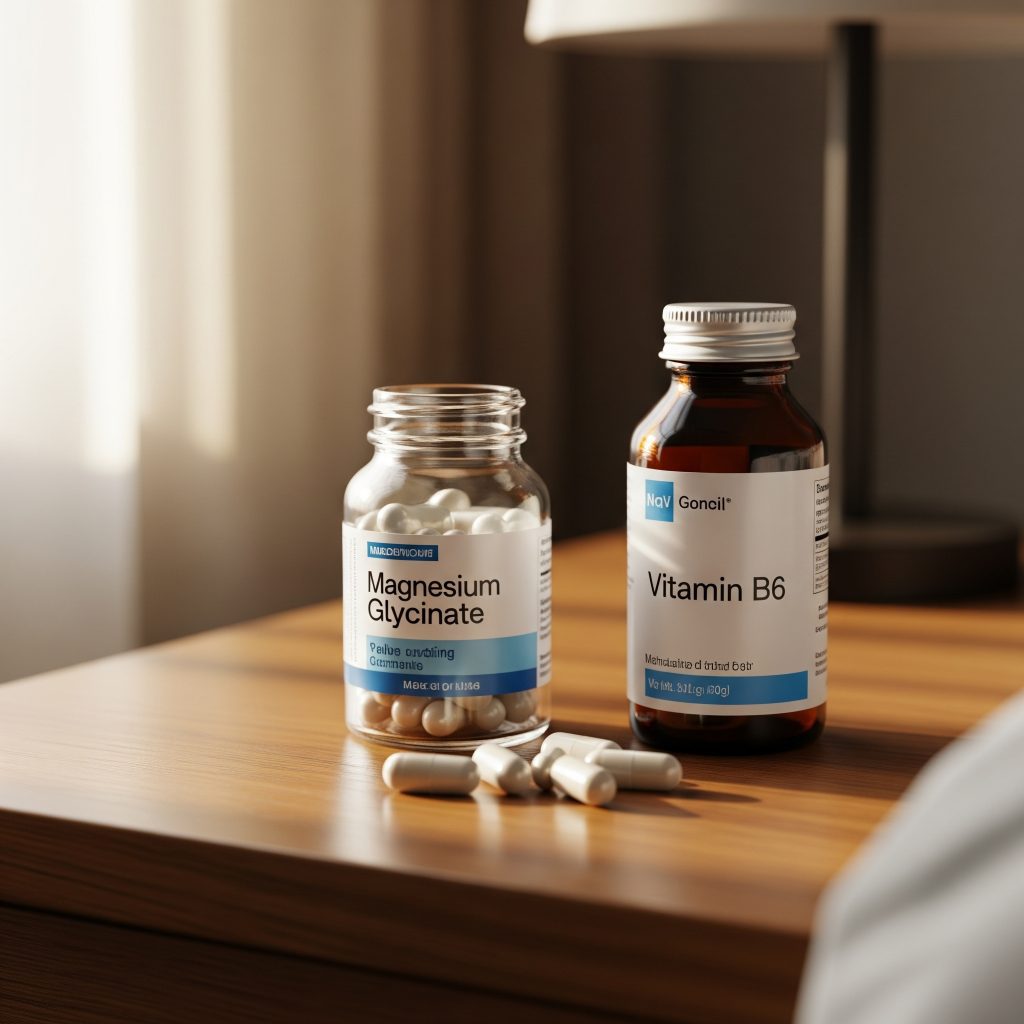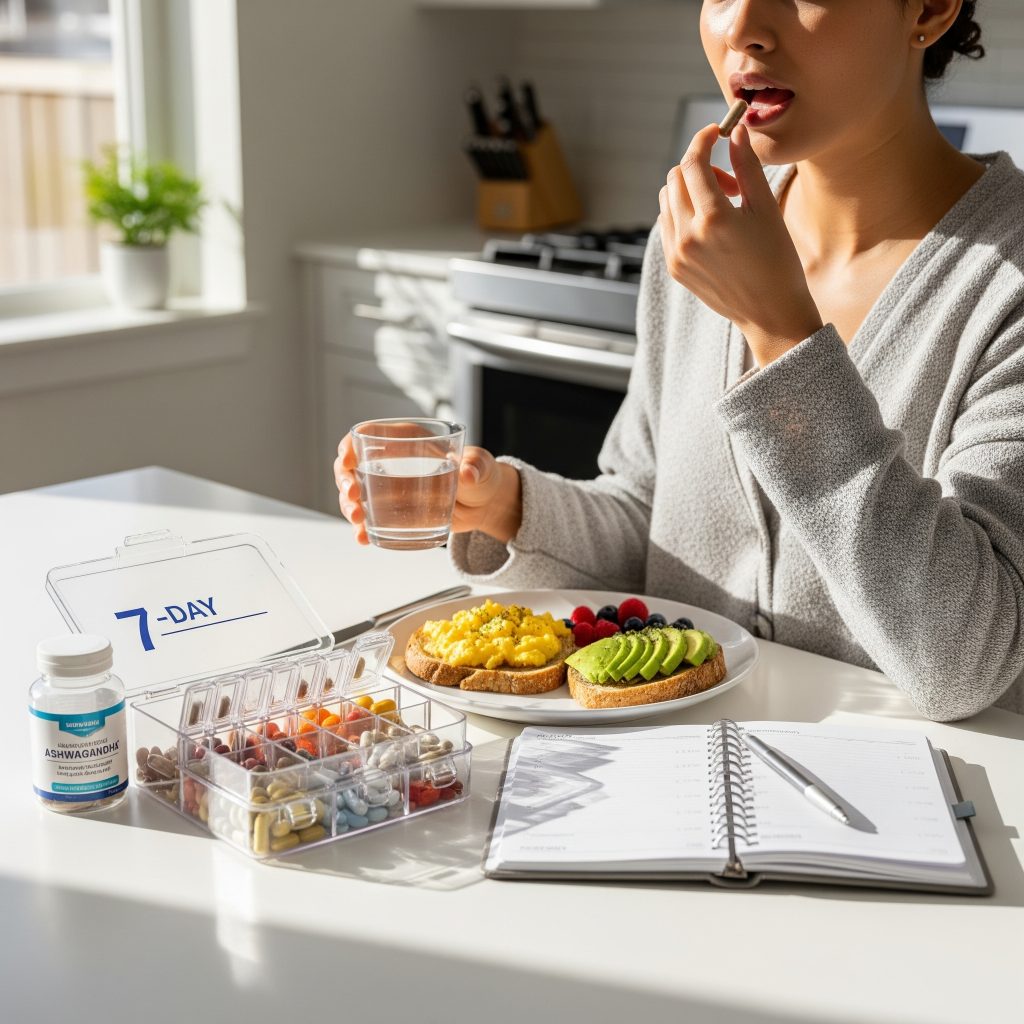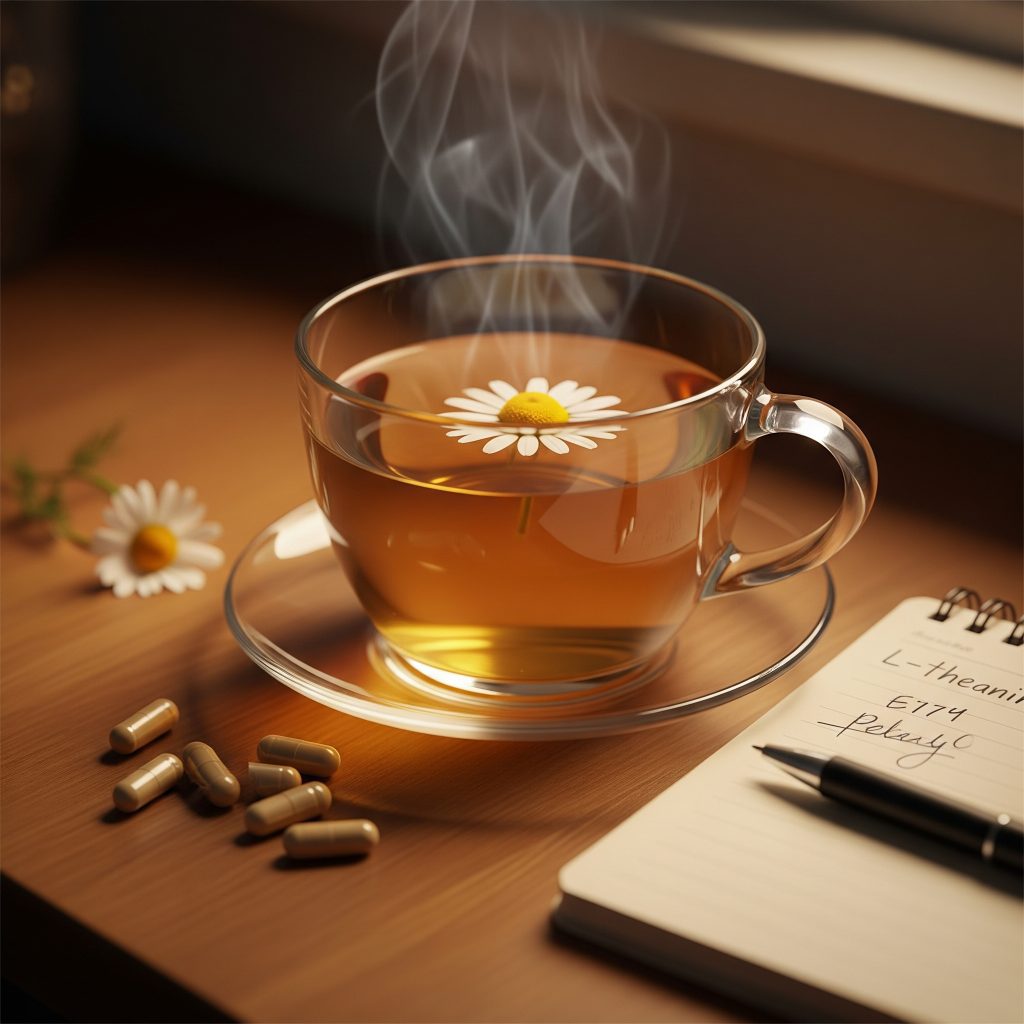If you’re searching for effective, natural anxiety remedies, there’s good news: research-backed supplements can provide significant relief. This article explores the most effective supplements for anxiety, including their mechanisms, dosing strategies, and how to combine them for optimal results. Backed by clinical evidence, these natural compounds may help calm your mind without the side effects of traditional medications. Whether you’re managing daily stress or looking for alternatives to pharmaceuticals, this guide will walk you through a structured anxiety supplement stack tailored to your needs.
Summary / Quick Answer
What are the best supplements for anxiety?
Research highlights the following natural supplements for anxiety relief:
- Ashwagandha: 80% clinical success rate; reduces cortisol and promotes calm
- L-Theanine: 66.7% success; rapid relief for cognitive anxiety and stress
- Magnesium (with B6): 62.5% success; improves sleep, tension, and PMS-related anxiety
- GABA: 60% efficacy; fast-acting for sleep and acute stress
A well-designed anxiety supplement stack begins with magnesium or L-theanine and gradually adds ashwagandha or GABA based on symptoms and tolerability
Magnesium for Anxiety Relief
Magnesium plays a foundational role in nervous system regulation, and low levels are strongly linked with increased anxiety symptoms.

How It Works
Magnesium acts as a natural calcium channel blocker, stabilizing neuron excitability. It also supports GABA signaling – the brain’s primary calming neurotransmitter – and helps regulate the stress-driven HPA axis.
Clinical Effectiveness
Studies show a 62.5% efficacy rate, especially when magnesium is combined with vitamin B6. According to a meta-analysis in Nutrients, this combination reduced anxiety symptoms by 31% more than placebo.
Key findings:
- Significant relief of somatic anxiety symptoms after 3-6 weeks
- 75% reduction in PMS-related anxiety when combined with B6
- Best results with 300mg+ magnesium daily, preferably glycinate or citrate
Dosing and Timing
| Phase | Dosage | Notes |
|---|---|---|
| Start | 200mg magnesium glycinate | Take with food in the evening |
| Adjust | Increase by 100mg weekly | Max 600mg/day based on tolerance |
| Support | Add 50mg B6 | Enhances efficacy and mood stability |
Safety Profile
Magnesium for Anxiety has a strong safety record. Gastrointestinal upset may occur at doses >350mg. Avoid use in severe kidney disease. No major interactions with SSRIs/SNRIs.
Learn more about the best magnesium forms.
L-Theanine Benefits for Cognitive Anxiety
If your anxiety feels more mental than physical, L-theanine may offer fast, effective relief without sedation.
How It Works
L-theanine promotes relaxed alertness by increasing alpha brain waves. It modulates multiple neurotransmitters including GABA, serotonin, and dopamine, while buffering glutamate-induced overexcitement.
Clinical Effectiveness
Controlled trials show a 66.7% success rate. Notable findings include:
- Acute stress relief within 30-60 minutes of 200mg dosing
- Improved sleep duration and quality, especially when paired with GABA
- Reduction in salivary cortisol and mental tension
Dosing and Timing
| Use Case | Dosage | Timing |
| General anxiety | 100–200mg | Morning or split doses |
| Performance anxiety | 200mg | 30–60 mins before event |
| Sleep support | 100mg + GABA | Evening, 2 hours before bed |
Safety Profile
L-Theanine benefits include excellent tolerability with minimal interactions. It’s safe with most medications, though caution is advised with high-dose SSRIs due to theoretical serotonin enhancement.
Ashwagandha: Top Performer for Stress and Cortisol
Ashwagandha is one of the most clinically validated natural anxiety remedies, known for its impact on stress hormones and resilience.

How It Works
This adaptogenic herb targets the HPA axis, reducing cortisol while enhancing GABA signaling. It also lowers inflammatory markers like CRP and IL-6, which are often elevated in chronic anxiety.
Clinical Effectiveness
Ashwagandha leads the group with an 80% success rate across more than 10 clinical trials:
- 27.9% reduction in Hamilton Anxiety Rating Scale scores
- 23–30% decrease in morning cortisol
- Long-lasting effects seen even 4 weeks post-treatment
Dosing and Timing
| Form | Dosage | Notes |
| Standardized extract | 300–600mg daily | Use KSM-66 or Shoden |
| Starting dose | 240mg | With breakfast, increase gradually |
| Duration | 8–12 weeks | For full therapeutic effect |
Safety Profile
Generally well tolerated, but moderate caution is advised with SSRIs/SNRIs due to potential serotonergic effects. Avoid during pregnancy or with autoimmune conditions.
GABA: Fast-Acting but Limited Brain Access
GABA is the primary inhibitory neurotransmitter in the brain, but oral supplementation presents bioavailability challenges.
How It Works
GABA supplements may exert effects via peripheral pathways, especially through the gut-brain axis. Despite limited central penetration, benefits still occur for many users.
Clinical Effectiveness
Trials report a 60% improvement rate with:
- Faster sleep onset and longer REM sleep
- 20–30% reductions in anxiety scores with higher doses (500–750mg)
- Enhanced resilience to acute stressors
Dosing and Timing
| Phase | Dosage | Timing |
| Start | 100mg | Evening on empty stomach |
| Target | 500–750mg | In divided doses |
| Optional | Combine with L-theanine | For enhanced effect |
Safety Profile
Safe for most users, but sedation may be amplified if combined with other calming medications. Limited interaction data exists. Oral GABA works best when stacked with other calming agents.
How to Build an Anxiety Supplement Stack

Stacking supplements allows for a tailored approach that evolves with your symptoms. Here’s how to do it safely and effectively:
Recommended Combinations
| Combo | Why It Works |
| Magnesium + B6 | Clinically superior to magnesium alone for mood regulation |
| L-Theanine + GABA | Improves sleep latency, REM, and NREM quality |
| Magnesium + L-Theanine | Mechanistically complementary; theoretical synergy |
3-Phase Implementation Protocol
Weeks 1–2: Start Low and Evaluate
- Choose one: magnesium or L-theanine based on primary symptom
- Track mood and sleep with validated scales like GAD-7
Weeks 3–6: Add a Second Agent
- Introduce complementary supplement if under 50% improvement
- Adjust doses upward slowly based on tolerance
Weeks 7–12: Advanced Stacking
- Add ashwagandha or GABA for persistent symptoms
- Optimize timing and maintain minimum effective dose
Safety and Drug Interaction Overview
Interaction Risk with Medications
| Supplement | SSRI/SNRI Interaction Risk |
| Magnesium | Low |
| L-Theanine | Low |
| GABA | Low |
| Ashwagandha | Moderate (theoretical serotonin enhancement) |
Key Contraindications
- Magnesium: Avoid in severe kidney disease
- Ashwagandha: Avoid in pregnancy and autoimmune disorders
- GABA & L-Theanine: Use cautiously with sedative medications
More on anxiety supplement interactions.
Conclusion
When used thoughtfully, a targeted anxiety supplement stack can be a powerful tool for managing stress and restoring calm. Ashwagandha offers the most consistent clinical results, magnesium is the safest starting point, and combining supplements strategically often leads to better outcomes. Always personalize your approach, start low, and monitor consistently. For further reading, explore our guides on magnesium and anxiety or ashwagandha for stress.

